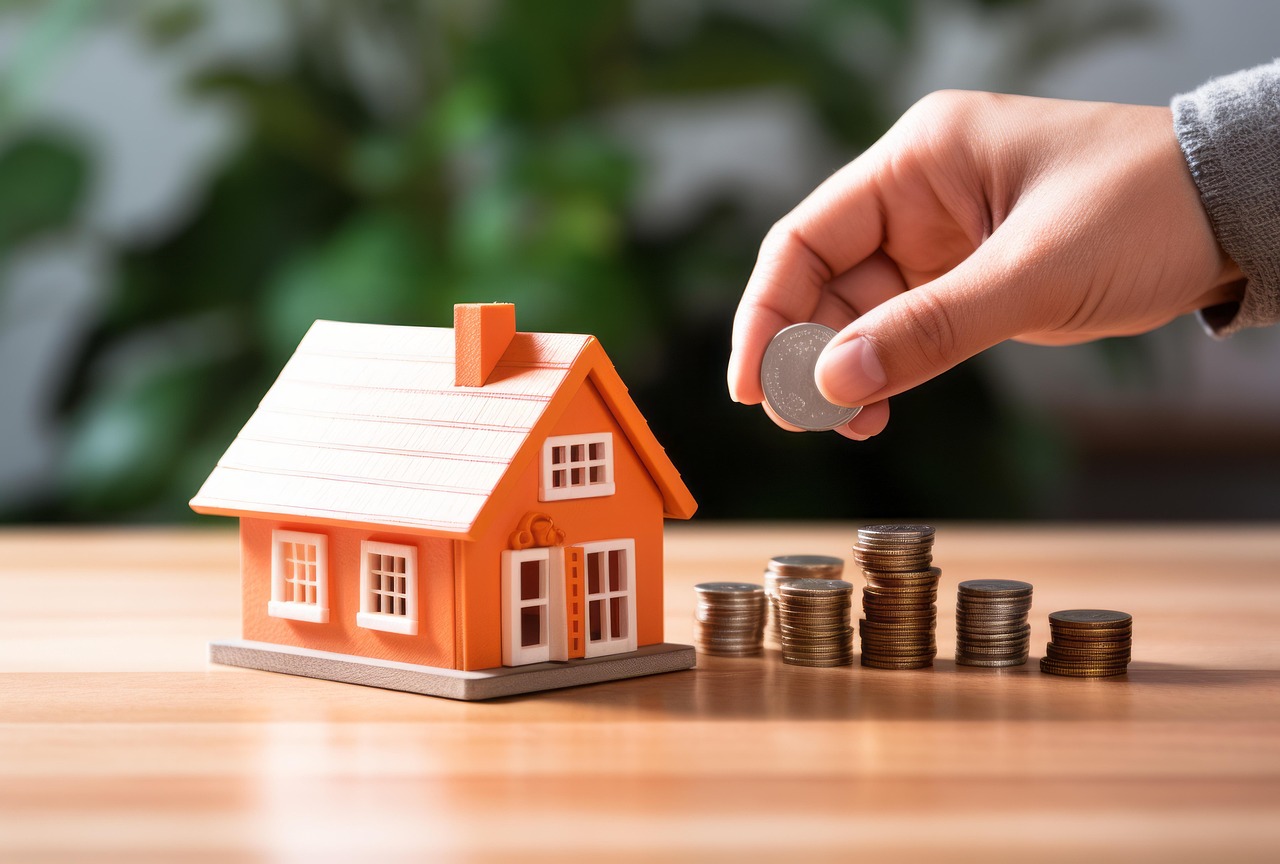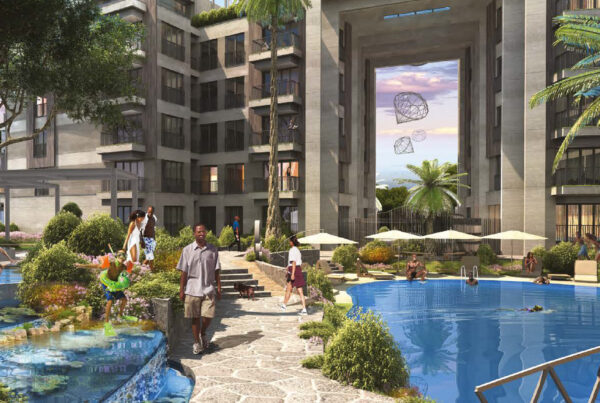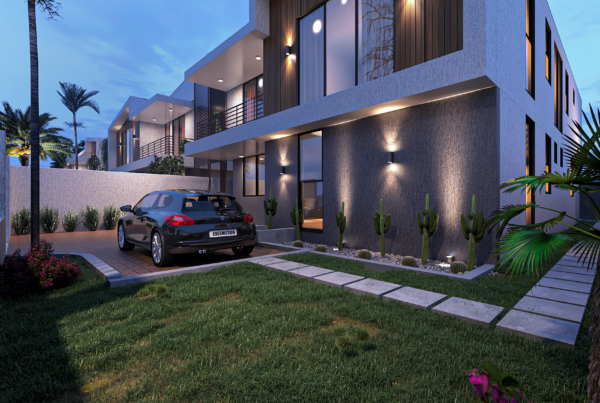In recent years, Ghana has emerged as a hotspot for real estate investment, attracting both local and international investors seeking lucrative opportunities. With its stable political climate, growing economy, and rapidly developing infrastructure, Ghana’s real estate market offers promising returns on investment (ROI). This comprehensive guide will explore the factors driving ROI in Ghana’s real estate sector and provide valuable insights for savvy investors looking to capitalise on this dynamic market.
Overview of Ghana’s Current Real Estate Market Performance
Ghana’s real estate market has shown resilience and growth potential in recent years 12. According to current estimates, the market is expected to grow by 5.53% between 2023 and 2028, resulting in a projected market volume of US$567.60 billion in 2028 12.
Recent Growth Trends
Despite economic challenges, the real estate sector in Ghana has demonstrated positive growth:
- In the 2nd quarter of 2023, real estate grew by 1.2%, up from 1.0% in the 1st quarter of 2023the Ghanaian real estate market watch trends and predictions for 2024/.
- Year-on-year growth rates in the 2nd quarter of 2023 saw real estate growth of 4.2%, a significant improvement compared to the -5.7% recorded in the same period the previous year – Ghana’s Real Estate Sector in 2023.
Market Segments
The residential real estate market remains the largest segment:
- The total value of the real estate market in Ghana is projected to reach US$458.52 billion in 2024
- Residential real estate is expected to dominate with a projected market volume of US$389.10 billion in 2024.
Factors Influencing ROI in Ghana’s Real Estate Sector
Several key factors contribute to the attractive ROI potential in Ghana’s real estate market:
- Economic Growth: Ghana’s consistent economic growth has fueled demand for both residential and commercial properties.
- Urbanisation: Rapid urbanisation, particularly in Accra, has created a high demand for quality housing and commercial spaces.
- Foreign Direct Investment: Ghana’s attractiveness as an investment destination has remained resilient, with total foreign direct investment of $829.29 million reported in 2021.
- Tourism and Hospitality: Government initiatives like the “Year of Return” have boosted tourism, increasing demand for short-term rentals and hotel accommodations.
- Infrastructure Development: Ongoing improvements in transportation networks and utilities have enhanced the value of properties in key areas.
Factors Influencing the Market
Several key factors are shaping Ghana’s real estate landscape:
- Urbanization and Population Growth: Accra’s metro area population in 2023 was 2,660,000, up 2.11% from 2022, driving demand for housing3.
- Focus on Affordable Housing: There’s an increasing need for cost-effective housing solutions, especially for middle and lower-income segments5.
- Rise of Mixed-Use Developments: Growing demand for integrated communities that combine residential, office, retail, and recreational spaces5.
- Technology Adoption: Increased use of virtual property tours, online mortgage applications, and smart home technologies5.
- Sustainability Trends: Growing focus on eco-friendly materials and sustainable practices in construction5.
ROI Comparison Across Property Types and Locations
Different property types and locations in Ghana offer varying ROI potentials:
- One-bedroom apartments: These units have shown the highest total returns, with strong demand driven by their affordability and flexibility. Ideal for investors seeking quick occupancy turnover and competitive pricing options.
- Two-bedroom apartments: Consistently in high demand year-round, these units provide stable rental returns, particularly during peak holiday seasons. A reliable choice for steady cash flow.
- Three-bedroom apartments: While experiencing slightly lower occupancy turnover, these properties remain popular as long-term investment options due to their enduring appeal.
- Detached homes and townhouses: Currently undersupplied in the high-end market, these properties offer strong long-term rental potential, with annual rents starting from USD 42,000.
Location-wise, Accra’s upmarket areas such as Cantonments, Airport Residential, East Legon, Labone, and Ridge command premium prices and rents. Sale prices for townhouses in these areas range from USD 350,000 to USD 2 million, with annual rental prices between USD 42,000 and USD 96,000.
Strategies for Maximizing Ghana’s Real Estate ROI
To optimize your returns in Ghana’s real estate market, consider the following strategies:
- Diversify your portfolio: Invest in a mix of property types to balance risk and maximize returns.
- Focus on prime locations: Properties in Accra’s upmarket areas tend to appreciate faster and command higher rents.
- Consider short-term rentals: The booming tourism sector offers opportunities for higher yields through short-term rentals, especially in prime areas.
- Invest in off-plan properties: Purchasing properties during the development phase can often result in significant capital appreciation upon completion.
- Leverage local expertise: Partner with reputable local real estate consultants who understand the market dynamics and can guide you through the investment process.
Potential Risks and Mitigation Strategies
While Ghana’s real estate market offers attractive ROI potential, investors should be aware of potential risks. Working with a reputable agent with extensive local experience, such as Ana Arkutu Consult, can help navigate these challenges effectively:
- Currency fluctuations: The Ghanaian Cedi has experienced volatility in recent years. An experienced consultant like Ana Arkutu can guide you in mitigating this risk by diversifying your investment portfolio or recommending properties that generate income in stable foreign currencies.
- Legal and regulatory challenges: Ghana’s property laws and regulations can be complex for foreign investors. Ana Arkutu Consult has a deep understanding of local legal frameworks and can connect you with experienced local legal advisors to ensure smooth property transactions.
- Market oversupply: Some segments of the market, particularly in the luxury sector, may face oversupply issues. With Ana Arkutu’s extensive market knowledge, you can conduct thorough market research and identify properties with unique selling points that stand out in a competitive market.
- Economic uncertainties: Staying informed about Ghana’s economic indicators is crucial for adjusting your investment strategy. Ana Arkutu Consult provides regular market updates and personalized advice to help you make informed decisions in response to economic changes.
Future Outlook for ROI in Ghana’s Real Estate Sector
The future of Ghana’s real estate market looks promising, with several factors contributing to its potential for continued growth and attractive ROI:
- Expanding middle class: A growing middle class is expected to drive demand for quality housing and commercial spaces.
- Infrastructure development: Ongoing and planned infrastructure projects will likely enhance property values in key areas.
- Technology adoption: The increasing use of proptech (property technology) is expected to streamline processes and potentially increase returns for investors.
- Government initiatives: Continued government support for the real estate sector, including efforts to address the housing deficit, is likely to create new investment opportunities.
Conclusion
Ghana’s real estate market offers exciting opportunities for investors seeking attractive returns on investment. By understanding the market dynamics, focusing on prime locations, and implementing strategic investment approaches, both local and foreign investors can capitalise on the growth potential of Ghana’s real estate sector.
FAQs
- Can foreigners purchase property in Ghana? Yes, foreigners can purchase property in Ghana. They can own leases on property for up to 50 years, which are generally renewable.
- What are the typical rental yields for high-end properties in Ghana?
Rental yields for high-end properties in Ghana generally range from 7% to 18%, depending on the property type, location, and amenities. - Which areas in Accra offer the highest returns on real estate investments? Cantonments, Ridge, East Legon, Airport Residential, and Labone are prime areas in Accra that yield the highest returns.
- Are there any tax implications for foreign real estate investors in Ghana?
Yes, foreign investors should be aware of various taxes, including:
- Rental income tax (8% for residential properties)
- Capital gains tax (15% on net gains)
- Annual property taxes (0.5% to 3% depending on the area)
- Stamp duty (currently <=2% of the property value)
It’s important to note that tax rates and regulations may change, so consulting with a local real estate expert like Ana Arkutu Consult and a tax professional is advisable to ensure compliance with the most current tax laws.
- What is the typical payment structure for purchasing property in Ghana? Sellers generally require a 20% – 30% down payment, with the outstanding balance paid across a period of 6 to 12 months or throughout the construction period for off-plan properties.
Ready to unlock the potential of Ghana’s real estate market? Contact Ana Arkutu Consult today for personalised investment advice and expert guidance on navigating Ghana’s dynamic property landscape. Let us help you make informed decisions and maximise your returns in one of Africa’s most promising real estate markets.






